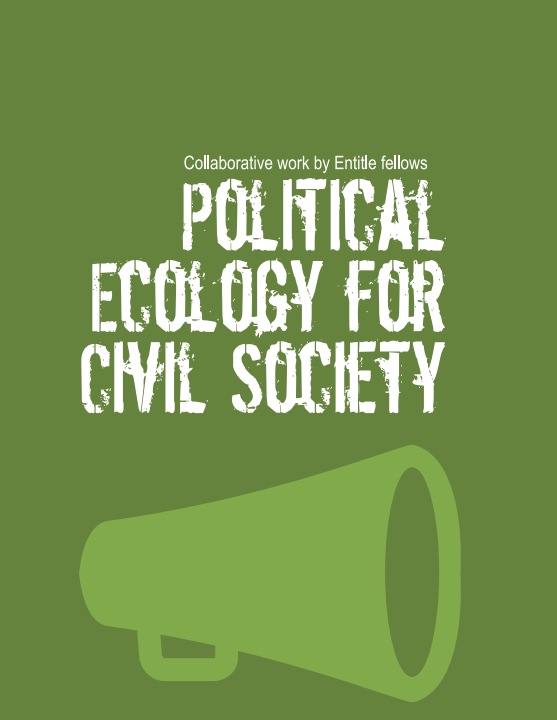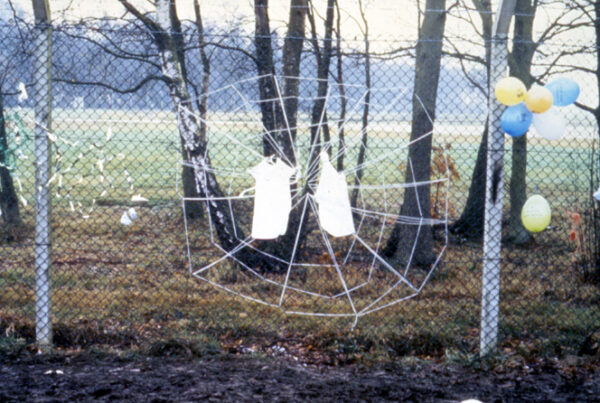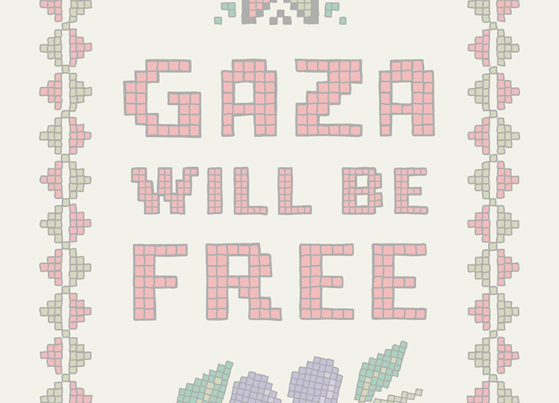A freely available Political Ecology for Civil Society manual was recently released by the ENTITLE network. Here we provide an overview of the manual and its objectives, plus the challenges we faced during its development.

Cover of the Political Ecology for Civil Society manual
As the European Network of Political Ecology (ENTITLE) project has come to a close, the Political Ecology for Civil Society manual, developed by ENTITLE doctoral and post-doctoral fellows, was released as one of the final project deliverables. Aside from giving a brief overview of the manual and providing a downloadable PDF, in this post we – the fellows – want to reflect on the challenge of producing collective work that is accessible and relevant to civil society.
Through the ENTITLE network, whose objective was to develop an academic training programme on political ecology, we sought to produce inclusive and socially relevant research. Among other activities, the project included the development of a manual for civil society as one of its outcomes (or project deliverables), coordinated by the project leader institution ICTA – Universitat Autónoma de Barcelona, and by project partner the Documentation Centre on Environmental Conflicts (CDCA). Organised around 5 main themes – environmental conflicts, disaster capitalism, social movements, commons and democracy – the manual seeks to explain and show how a political ecology approach can help define key concepts and illustrate theories, methods and tools. The bulk of the manual does this through case studies in a variety of different contexts around the world.
Designed for a broad audience and in particular for the use of civil society organisations and active citizens, we aimed to offer an accessible insight into political ecology, providing intellectual and practical tools based on the experience of a new generation of political ecology activist-scholars or engaged-scholars. The driving objective of this manual has been to serve as a reference, providing a basic introduction to political ecology and communicating some important insights from the field.
At the same time, the theoretical and thematic expansion of political ecology has been noteworthy, especially during the last couple of decades. To try to condense such knowledge in an illustrative, comprehensible and coherent way has not been an easy job. We also struggled with how to make the manual relevant to civil society organisations and specifically activists who are on the front-lines of struggles, a process which involved countless debates between us doctoral and post-doctoral fellows. These debates were heightened by the tension between the manual being a project deliverable, required for the Marie Curie training program funding scheme, and something we truly wanted to make relevant for a non-academic audience, something that requires significant time and dedication that many struggled to find amidst research and thesis writing.
Recognising the conflicts and challenges we faced, our approach to the manual was to amplify the voices of people who have been involved in environmental conflict, faced injustice and/or are struggling for democracy. By drawing the connections between issues that might appear to be localised but have wider common sources and implications, we wanted to show how specific claims become relevant for people beyond specific localities and for more than one “issue”. Whereas this process reveals multiple levels of complexity, it also opens up opportunities for building connections between, and uniting, struggles.
In our research, each of us has gone through different levels of involvement with various types of social movements, organisations and individuals, with whom we worked, shared anxieties and whose distinct claims and life struggles we tried to document. We are very aware of the limitations of “transmitting” messages when filtered through an academic mindset and context in which we are also immersed. However, we sought to contribute to a dialogue, share experiences, findings, and tools, and invite the cross-fertilisation of ideas, concepts and vocabularies.
This manual is, therefore, only one small step in the path towards building meaningful scholar-activist relations, which surely requires long-term commitment, relations of trust and reciprocity and a balanced combination of informed critical scholarship and activist engagement.
We are eager to receive comments from readers and especially from activists and civil actors themselves, on how this work could be improved, both in terms of useful content, richness of examples, format, presentation and overall accessibility.
In the next weeks, we will be releasing the case studies included in the manual as individual blog posts, in order to increase their visibility.
To read and disseminate the manual, you can download the pdf here or here.





PDF file is unreachable at the moment.
The ENTITLE website is down for technical reasons at the moment, but will come back soon! In the meantime, you can find the manual here:https://www.academia.edu/26672688/ENTITLE_project_Political_ecology_for_civil_society